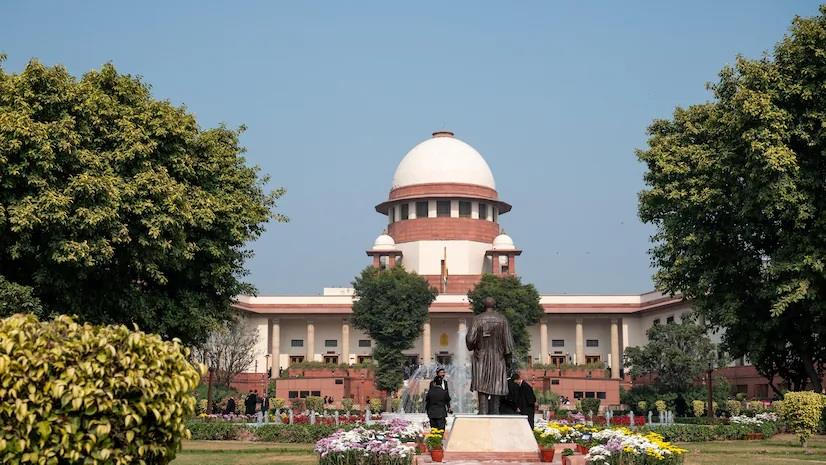
SC Mandates Written Grounds Of Arrest For All Offences
File photo of Supreme Court of India. (Photo credit: Shutterstock)
New Delhi- In a landmark verdict, the Supreme Court on Thursday held that every arrested person must be furnished with the grounds of arrest in writing and in a language they understand irrespective of the nature of the offence or statute involved.
In the verdict that strengthens constitutional protection for personal liberty, the top court held that non supply of grounds of arrest in writing to the arrestee prior to or immediately after arrest would not vitiate such arrest if the same is“supplied in writing within a reasonable time and in any case two hours prior to the production of the arrestee before the magistrate for remand proceedings”.
A bench comprising Chief Justice B R Gavai and Justice Augustine George Masih delivered the judgment in the Mihir Rajesh Shah vs State of Maharashtra case that arose from the high-profile Mumbai BMW hit-and-run incident of July 2024.
ADVERTISEMENTJustice Masih, writing a 52-page judgment for the bench, ruled that the constitutional mandate under Article 22(1) of the Constitution, which guarantees that an arrested person must be informed“as soon as may be” of the grounds of arrest, is not a procedural formality but a fundamental safeguard of personal liberty.
“This court is of the opinion that to achieve the intended objective of the constitutional mandate of Article 22(1) of the Constitution of India, the grounds of arrest must be informed to the arrested person in each and every case without exception and the mode of the communication of such grounds must be in writing in the language he understands,” the verdict said.
“The constitutional mandate of informing the arrestee the grounds of arrest is mandatory in all offences under all statutes including offences under IPC 1860 (now BNS 2023),” it held.
“The grounds of arrest must be communicated in writing to the arrestee in the language he/she understands and in case(s) where, the arresting officer/person is unable to communicate the grounds of arrest in writing on or soon after arrest, it be so done orally. The said grounds be communicated in writing within a reasonable time and in any case at least two hours prior to production of the arrestee for remand proceedings before the magistrate,” it directed.
In case of non-compliance, the arrest and subsequent remand would be rendered illegal and the person will be at liberty to be set free, it said.
The top court directed its registry to send a copy of the judgment to all the registrars general of the high courts and the chief secretaries of all the states and Union territories.
The verdict dealt with two issues and the first one was“whether in each and every case, even arising out of an offence under IPC now Bharatiya Nyaya Sanhita, 2023 would it be necessary to furnish grounds of arrest to an accused either before arrest or forthwith after arrest”.
The second issue was whether, even in exceptional cases, where on account of certain exigencies it will not be possible to furnish the grounds of arrest either before arrest or immediately after, the arrest would be vitiated.
Referring to earlier verdicts, it said,“Mere communication of the grounds in a language not understood by the person arrested does not fulfil the constitutional mandate under Article 22 of the Constitution of India. The failure to supply such grounds in a language understood by the arrestee renders the constitutional safeguards illusory and infringes the personal liberty of the person as guaranteed under Article 21 and 22 of the Constitution.”

Legal Disclaimer:
MENAFN provides the
information “as is” without warranty of any kind. We do not accept
any responsibility or liability for the accuracy, content, images,
videos, licenses, completeness, legality, or reliability of the information
contained in this article. If you have any complaints or copyright
issues related to this article, kindly contact the provider above.

















Comments
No comment